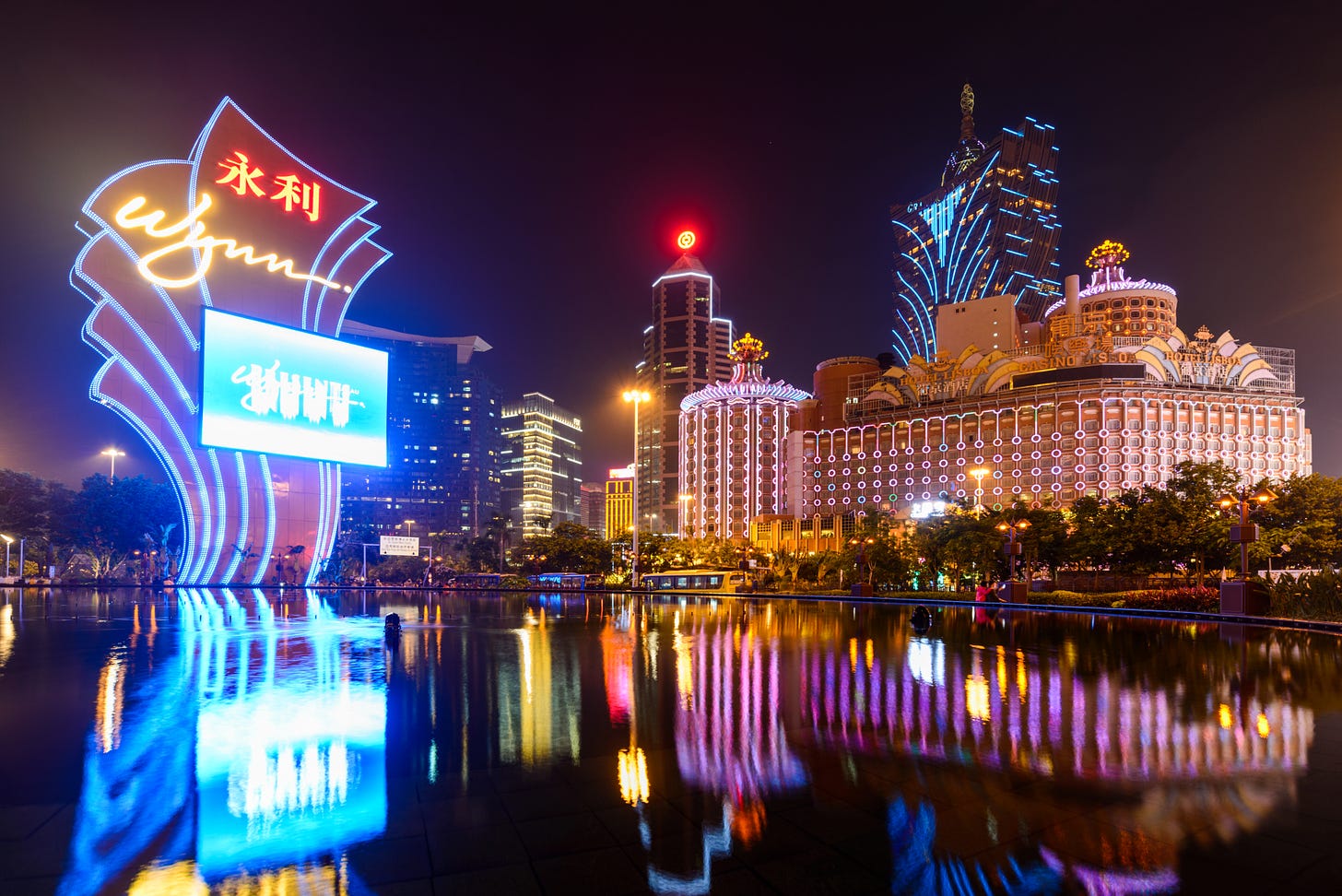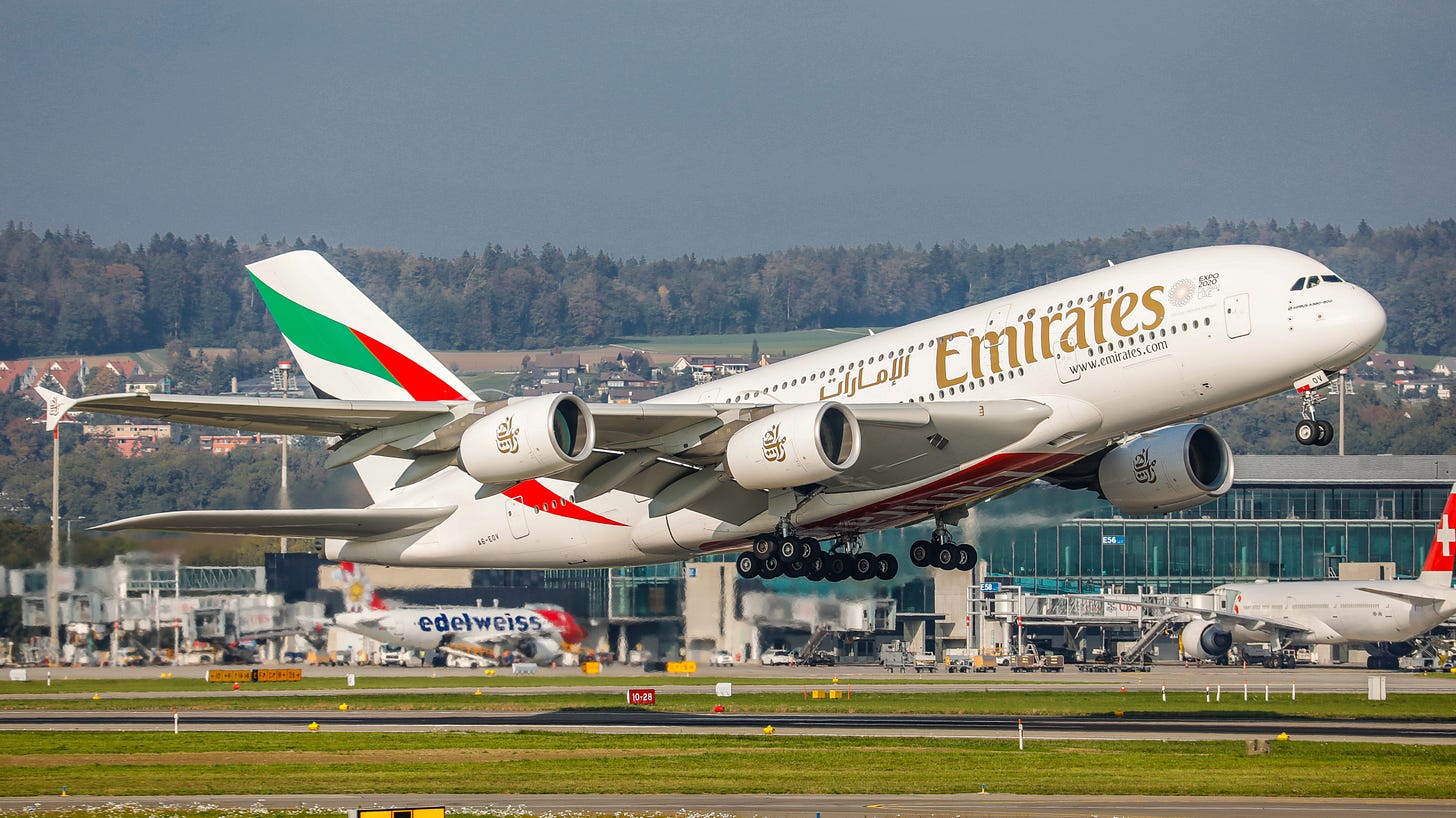Emerging Markets Daily - September 16
Hang Seng Hits 10 Month Low, India's Rising Vaccinations, China Condemns New US-Led Security Pact, Emirates Hiring to Meet Rising Travel Demand, Ethiopia Telecoms
The Top 5 Emerging Markets Stories from Global Media - September 16
Hang Seng Hits 10-Month Low on Macau Casino and Regulatory Concerns
South China Morning Post
“Hong Kong stocks dropped for a fourth day, sending the benchmark gauge to the lowest in 10 months, on mounting concerns regulatory crackdown is far from over following a move on Macau’s casino industry. Some banks tumbled as China Evergrande sought forbearance on loans.”
“The Hang Seng Index slid 1.5 per cent to 24,667.85 at the close on Thursday, the lowest since November 2. The benchmark has lost 9.4 per cent this year, the worst performer among the major equity gauges globally. The Hang Seng Tech Index retreated 1 per cent while China’s Shanghai Composite Index lost 1.3 per cent.”
“Sands China led a sell-off that erased more than US$19 billion in market value from Macau casino stocks over two days. China Evergrande Group and some of its principal lenders tumbled after the developer asked to defer loan repayments, according to a media report.”
“The Macau plan ‘could reduce the visibility on casino operators’ long-term business outlook, and we raise our fair value uncertainty rating for the Macau gaming companies to very high from high,’ Jennifer Song, an analyst at Morningstar, wrote in a report. ‘The policy steer is fairly vague, in our view, but the reference to social responsibility is sending chills down the spines of investors, given recent developments in the technology and education sectors in China.’” Zhang Shidong reports.
India’s Fully Vaccinated: 20%. Indians With One Dose: 62%. Festival Season Dawns, Sparking Warnings of Spikes
Business Standard (India).
“As the festival season approaches, the government on Thursday cautioned against a spike in coronavirus infections, and stressed that the call of the hour is vaccine acceptance, maintenance of COVID-19-appropriate behaviour, responsible travel and responsible festivities.”
"‘Overall there is stabilisation in COVID-19 cases and Kerala has also reported drop in cases.... In the coming two-three months, we need to be cautious that there is no upsurge.... It is also the period of festivities and also when flu cases rise...we request everyone to be careful and retain the gain that we have achieved (in the pandemic management),’ an official said at a press briefing.”
“The government said 20 per cent of India's adult population have received both doses of COVID-19 vaccine and 62 per cent have got at least one dose.” Business Standard reports.
Geopolitics: China Lashes Out Against New US-Led Security Pact
Financial Times
“China has hit out at Australia, the UK and US for playing ‘geopolitical games’ after they struck a new security pact to let Canberra acquire nuclear-powered submarines.”
“Zhao Lijian, China’s foreign ministry spokesperson, accused the three countries on Thursday of double standards and an ‘outdated cold war zero-sum mentality’. The comments show the extreme sensitivity of the AUKUS agreement, which Taiwan and Japan have hailed for its potential to offset an increasingly assertive China.”
“Paris also reacted to the deal with fury, but for different reasons, after Canberra cancelled a $90bn programme to acquire 12 conventionally powered submarines from France. Australia will instead procure at least eight nuclear-powered submarines, which are faster, stealthier and able to operate over longer ranges.”
“Describing the agreement as the biggest initiative in Australian defence policy since its alliance with the US in 1951, Scott Morrison, prime minister, said it was a ‘forever partnership . . . between the oldest and most trusted of friends’. Canberra also intends to buy Tomahawk cruise missiles for its navy, and air-launched cruise missiles for the Royal Australian Air Force, said Morrison.” The FT reports.
Emirates To Hire 3,000 Cabin Crew to Meet Reviving Travel Demand
The National
“Emirates, the world’s biggest long-haul airline, is set to hire 3,000 cabin crew and 500 airport services employees in the next six months as the Dubai-based carrier seeks to ramp up operations to cater to recovering travel demand…”
“The Covid-19 pandemic hit the global aviation industry hard last year and led to airlines grounding aircraft, cutting jobs and slashing salaries. However, the reopening of economies globally, the easing of pandemic-induced travel restrictions and accelerated vaccination programmes are leading to a rebound in travel demand…”
“Like many other major airlines around the world, Emirates took steps to slash costs and conserve cash by reducing staff wages, cutting jobs, and offering cabin crew voluntary unpaid leave to cope with the fallout from the pandemic.”
“But the airline has gradually restored its operations in line with the easing of travel restrictions around the world. In recent months it has recalled pilots, cabin crew and other operational employees who were stood down when the pandemic forced a drastic reduction in flights last year. It also reinstated the full salaries of its staff from October last year.”
“Emirates currently flies to more than 120 cities, representing 90 per cent of its pre-pandemic network, the statement said. The Dubai airline plans to restore 70 per cent of its capacity by the end of the year, including bringing back more of its A380 aircraft into active service, it added.”
“The Dubai airline, which reported a loss of Dh20.3 billion ($5.5bn) for the fiscal year ending March 31, compared with a profit of Dh1.1bn in the previous year, has been optimistic about the rebound in the aviation sector and the industry's future outlook.”
“‘Economies and companies that entered pandemic times in a strong position will be better placed to bounce back,’ chairman and chief executive Sheikh Ahmed bin Saeed said earlier this year.” Deepthi Nair reports.
Ethiopia Invites Bid for 40% Stake in Giant Ethio Telecom
The East African
“The Ethiopian government on Tuesday announced that it has launched a bidding process for private investors to buy a 40 percent stake in state-owned telecommunications service provider, Ethio Telecom.”
“The Ethiopian Ministry of Finance, which is leading the bidding process, released the request for proposal (RFP) for the partial privatisation.”
"‘The Government of Ethiopia has released an RFP for the Partial Privatization of Ethio Telecom to invite proposals from interested parties who can add value to the company by bringing in best practices in operations, infrastructure management and technological capabilities,’ the ministry said.” Tesfa-Alem Tele reports.
“Traveling - it leaves you speeches, then it turns you into a story-teller.” Ibn Battuta, 14th century Moroccan explorer.
For more on travel, see “Why Travel Matters,” by Emerging World founder Afshin Molavi.




